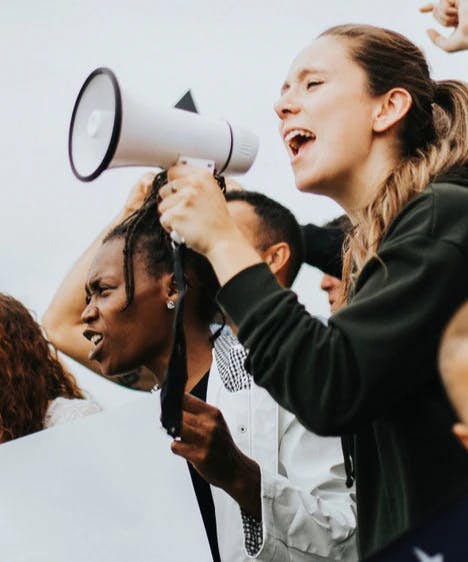Why Tribalism Is The Real Problem In Our Country
Our world is more divided today than ever before. We’re bogged down by the never-ending debates between atheists and Christians, Republicans and Democrats, men and women. In reality, we all really want the same thing: To be on the right side of history, to be playing for the good, virtuous team. But what if we’re all in the wrong?

A few years ago, I got into a heated discussion with a friend about our country’s political climate. Completely assured of the moral high-ground my beliefs at the time held, I confidently (read: rudely) told her that people like her, who refused to pledge her allegiance to either of the two major political parties, were the problem with our society.
But after a few more debates of a similar manner with her, I attempted to open my mind past what I’d always known and had been told was right and just. And as I watched her treat others with more kindness and love than I’d ever seen before from anyone, I started questioning my long-held opinions. Maybe I was the problem with our society.
Hey, Can I Join the Club?
We all want a place to call home – we crave familiarity, community, and kinship. This is nothing new. Finding a tribe is an intrinsic human need we’ve seen enacted since the beginning of time because finding others who lived like us was essential for our survival. Put in more modern terms: In elementary school, there was an unspoken promise to dislike anyone one of our friends disliked (Mean Girls, anyone?). We’ve bonded with others over our mutual disapproval of someone's actions. We’ve made ourselves like a mediocre pop star’s music to fit in.
Finding a tribe is an intrinsic human need.
Our need to be part of a club runs deep, and it doesn’t go away after high school; it just gets more complicated as we embark on adulthood. At the tender-yet-often-overconfident age of 18, we’re encouraged to register with a political party. And in doing so, we’re asked to agree to a list of rules, ideas, and values we must abide by, without a second thought, in order to be included in the club. But this feels safe for many of us – we kind of like being told what to think, and being offered an easy way to fit in is attractive as we search for an identity. As we grow into adulthood, we exchange our high school cliques for political parties.
We’re the Good Guys, Right?
We often think of our supposed enemies as a monolith. We’re ready to call anyone who disagrees with us “bigoted” or “snowflakes” at the drop of a hat – for merely having an alternate point of view. It goes without saying that we’ll always believe our tribe is the one in the right, not necessarily because they are, but because we have to. And our media is quick to capitalize on that. Whether we lean left or right, there are countless news outlets willing and happy to feed us a narrative that never once challenges our opinions, but only reinforces deep-rooted biases.
It goes without saying that we’ll always believe our tribe is the one in the right.
It’s more comfortable for us to be able to separate the population into two clear categories: good and evil, right and wrong, loving and hateful. But somehow, on our quest to be on the “good” team – to become more accepting and open-minded – we’ve become militant and unforgiving. We’ve fallen into the trap of no longer thinking for ourselves, or coming to our own conclusions about social issues, or respecting someone else’s different line of thought.
We’re now in a place where, in order to be affiliated with any political party, we have no choice but to make excuses for the team we’ve chosen; to hold our guys to completely different standards from the ones we enforce in regards to the opposing party. But we aren’t just sticking up for our team, we’re mercilessly demonizing anyone who’s not on it.
Maybe No Team Is the Best Team
Perhaps this need to stuff everyone into neat little labeled boxes is what’s tearing this country apart. Our simplistic, “us versus them” mentality is the driving force behind the divisiveness we see. It renders us unable to see someone on the opposite side of the aisle as a fellow human being with thoughts, feelings, shortcomings, and virtues.
Pledging our allegiance to principle, compassion, and impartiality seems to be the only logical answer.
In the few years since my friend challenged my assertions, it’s become clear to me that in the midst of some of the most divisive times in our country, it’s imperative that we make the extra effort to support policies, ideas, and movements that align with truth and morality. And, unfortunately, no single party unfailingly has the corner on those two things. Therefore, distancing ourselves from complete partisanship, and instead pledging our allegiance to principle, compassion, and impartiality seems to be the only logical answer.
Closing Thoughts
To combat our natural instinct to find a way to belong, we must be open to questioning what we’ve always believed to be God’s honest truth and be open to having our assumptions proved wrong. We have to let go of the need to have clear cut heroes and villains, and be willing to enter uncomfortable territory as we realize there are merits and drawbacks to a vast array of viewpoints.